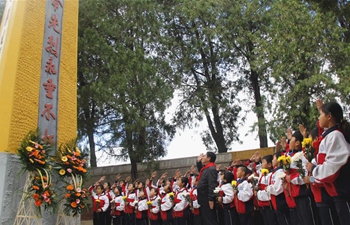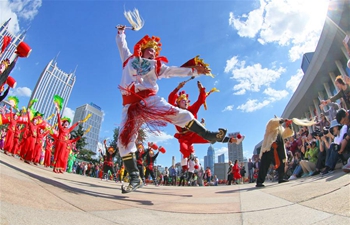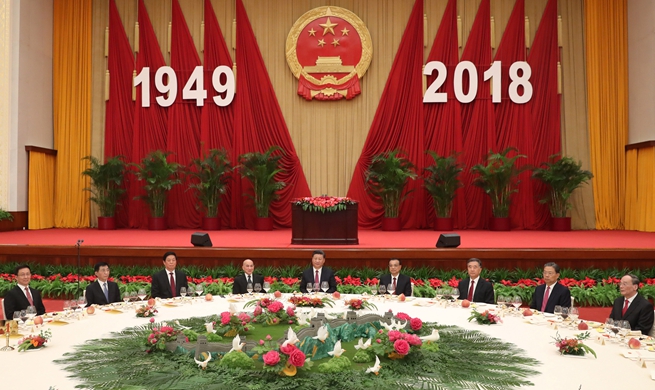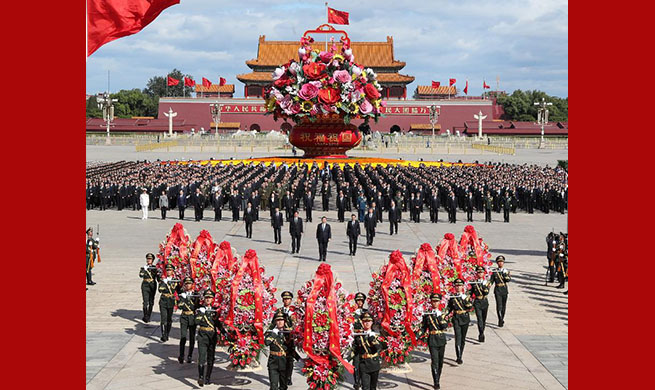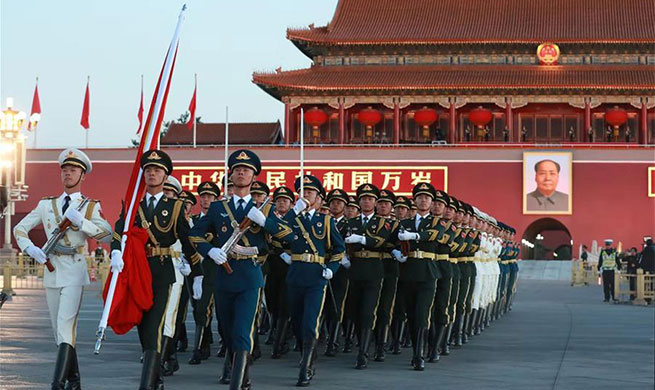RIO DE JANEIRO, Sept. 29 (Xinhua) -- Massive protests led by Brazilian women of different political affiliations shook Brazil on Saturday, as hundreds of thousands people gathered to reject the leading presidential candidate Jair Bolsonaro.
The large-scale protests took place in at least 62 major cities, gathering women and men of different ages, ethnic groups, sexual orientations, social classes and political parties, campaigning for voters to choose any of 13 presidential candidates - except Bolsonaro.
The largest event took place in Sao Paulo, where around 500,000 people participated. Hundreds of thousands people also gathered in Rio de Janeiro and Recife. In addition, protests were held in several foreign countries such as Argentina, France, Germany, Chile and Spain.
The protests were first organized via social media under the hashtag #EleNao (NotHim) by a Facebook group named 'Women against Bolsonaro', founded in August. The protests quickly gathered millions of members - now over 3.8 million.
Bolsonaro's ideas for public security, including drastically reducing gun control and shielding police officers from being prosecuted for the murder of innocents, were opposed by a group called Antifascist Policemen, said Janaina Matos, a police officer who believes in new public policies to fight crime.
Today, the greatest enemy of indigenous people in Brazil is Bolsonaro, said Papion Santos, an indigenous activist. The candidate's distaste for indigenous population is well-known, and he stated during the campaign that he would stop the demarcation of indigenous lands completely and his government would not surrender one centimeter to indigenous people in Brazil.
Defending indigenous lands is defending the planet, Santos told Xinhua, hoping Brazil's new president will listen to the demands of indigenous people and other vulnerable groups.
Bolsonaro, who has some 25 to 30 percent of voting intentions according to the latest polls, is widely considered to be sexist, racist, homophobic and even fascist.
He became widely popular in recent years, claiming to be an honest politician concerned about public security and traditional values. That stance has helped him with right-wing voters; he is popular among the rich and has a strong advantage in the southeast and south regions.
However, repeated statements against gender equality and open hostility toward minorities in general increased his rejection rate significantly in recent months. According to the latest Datafolha poll, 52 percent of Brazilian women and 54 percent of black citizens would not vote for Bolsonaro under any circumstances. In the poorer northeastern region, Bolsonaro's rejection hits 61 percent.
A week before the election, massive protests against the candidate are likely to dominate the news in the next few days. Bolsonaro left the hospital earlier on Saturday - he was stabbed by an apparent lone wolf on Sept. 6 - and will certainly be questioned by rivals and reporters over his difficulties in dealing with half of the electorate.
In a TV interview aired on Friday, he minimized the importance of the groups that oppose him, although critics say rejecting a large bloc of voters may be unwise.




